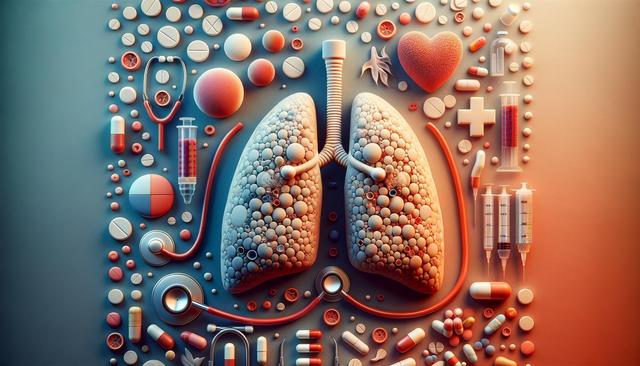Understanding Pneumonia and Its Risks
Pneumonia is a serious respiratory infection that can affect individuals of all ages, but it poses a greater threat to older adults, young children, and those with weakened immune systems. It occurs when the air sacs in one or both lungs become inflamed and filled with fluid or pus, leading to symptoms such as cough, fever, difficulty breathing, and chest pain. In some cases, pneumonia can lead to life-threatening complications, especially if not treated promptly. Recognizing the risks associated with pneumonia is crucial for effective prevention and timely treatment. For individuals with chronic health conditions like asthma, diabetes, or heart disease, the risk of severe pneumonia is significantly higher, emphasizing the need for proactive health measures such as Pneumonia Shots.
The Role of Pneumonia Vaccination
Pneumonia Vaccination plays a pivotal role in reducing the incidence and severity of pneumococcal infections, which are among the most common causes of pneumonia. The vaccine helps the body build immunity against specific strains of bacteria that can lead to infection. There are different types of pneumonia vaccines available, and your healthcare provider can recommend the most suitable one based on your age, medical history, and risk factors. The immunization process is typically straightforward and offers long-term protection, making it an essential component of overall Health Protection. Benefits of the vaccine include:
- Lower risk of developing severe pneumonia
- Fewer hospitalizations due to respiratory infections
- Reduced transmission of pneumococcal bacteria
- Enhanced immunity, particularly in vulnerable populations
By incorporating Pneumonia Vaccination into routine healthcare, individuals are taking a proactive step toward protecting their Respiratory Health.
Treatment Options for Pneumonia
Although prevention is ideal, treatment becomes necessary when pneumonia develops. The appropriate treatment depends on the type and severity of the infection. Bacterial pneumonia is typically treated with antibiotics, while viral pneumonia may require antiviral medications and supportive care. Hospitalization may be necessary for severe cases, especially in older adults or those with chronic illness. Treatment plans often include:
- Prescription antibiotics or antivirals
- Rest and increased fluid intake
- Oxygen therapy for those with breathing difficulties
- Pain relievers and fever reducers
Early diagnosis and adherence to treatment guidelines can significantly improve recovery outcomes. In addition to medical interventions, staying up to date with vaccinations, including Pneumonia Shots, supports quicker recovery and helps prevent future infections.
Who Should Consider Pneumonia Shots
While Pneumonia Vaccination is recommended for everyone at some point in their life, certain groups are more strongly advised to receive it due to their increased vulnerability. Adults aged 65 and older are at the highest risk, as are individuals with compromised immune systems or chronic health conditions. Children under the age of five are also commonly vaccinated as part of early childhood immunization schedules. People who fall into the following categories should speak to their healthcare provider about getting vaccinated:
- Seniors over the age of 65
- Individuals with chronic illnesses like asthma, chronic obstructive pulmonary disease (COPD), or diabetes
- People with weakened immune systems due to cancer treatment or autoimmune diseases
- Smokers, who are more prone to respiratory infections
- Healthcare workers and caregivers who are frequently exposed to illness
Ensuring that these groups receive timely Pneumonia Shots is a key step in improving public health outcomes and reducing the burden on healthcare systems.
Maintaining Long-Term Respiratory Health
Beyond vaccination and treatment, maintaining strong Respiratory Health involves a combination of lifestyle choices and preventive care. Regular check-ups, a nutritious diet, and avoiding tobacco smoke all contribute to a resilient immune system. For those with existing respiratory conditions, managing symptoms and adhering to prescribed medications can minimize complications. Incorporating the following habits can further reinforce your Health Protection strategy:
- Engage in regular physical activity to strengthen lung function
- Wash hands frequently to reduce the spread of germs
- Stay hydrated to keep mucous membranes moist and effective
- Get annual flu shots, as influenza can lead to secondary pneumonia
Combining these practices with the protective benefits of Pneumonia Vaccination creates a comprehensive approach to health. Prioritizing preventive measures contributes to overall wellness and reduces the risk of severe illness.
Conclusion: Taking Charge of Your Health
Pneumonia is a serious condition, but many of its risks can be managed or even avoided with the right approach. For older adults, individuals with chronic conditions, and caregivers, understanding the importance of Pneumonia Vaccination is essential. The benefits are clear: fewer infections, reduced hospital visits, and stronger protection for your Respiratory Health. Incorporating Pneumonia Shots into your healthcare routine, alongside healthy habits and timely treatment when needed, empowers you to take charge of your wellbeing. Speak with your healthcare provider to determine the right vaccination plan for you and stay proactive in protecting your health.




Leave a Reply